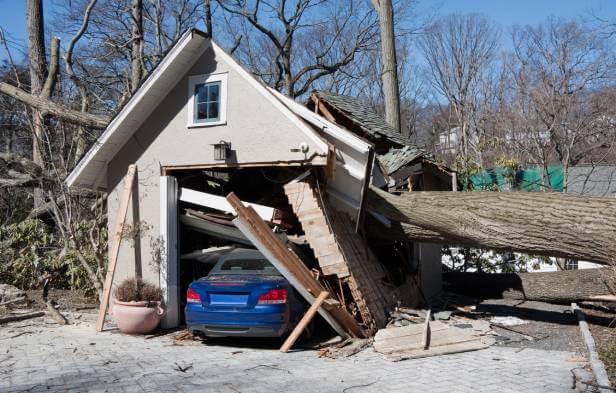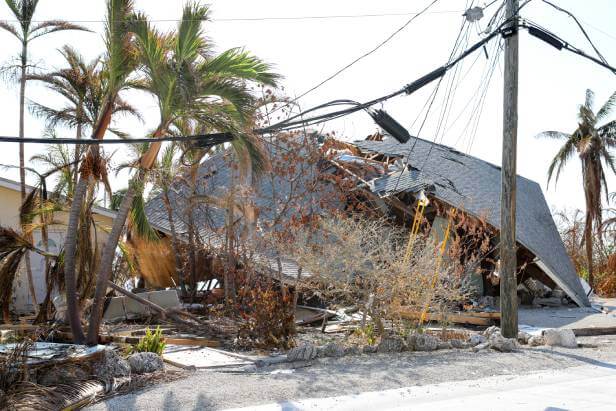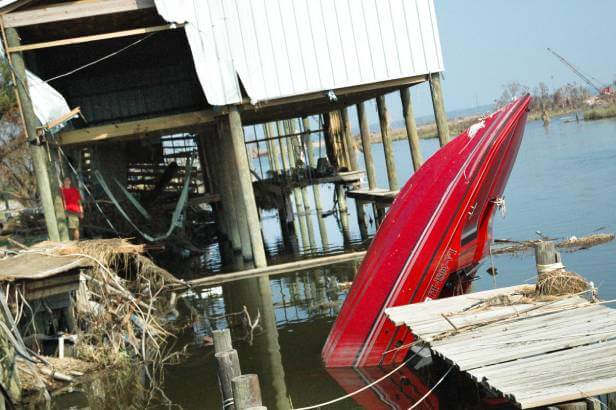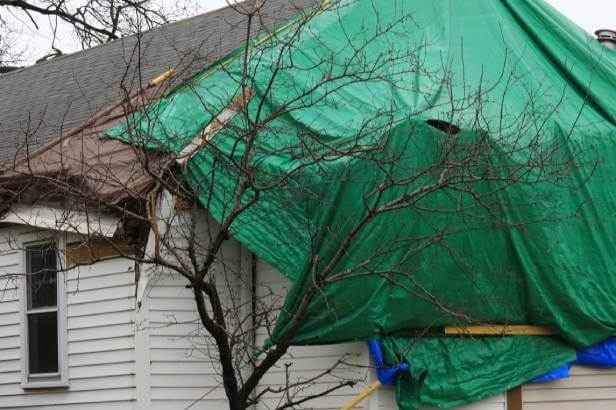In the aftermath of a natural disaster, like Hurricane Helene, thousands of homeowners are left grappling with damage to their homes and property. As you begin the process of rebuilding, it’s vital to understand your rights when working with contractors. This article will help you navigate this critical time, helping you avoid fraud, receive quality work, and resolve disputes.
1. Know your rights before signing a contract
When you’re dealing with storm damage, you may be eager to begin repairs as quickly as possible. However, it’s essential to know your rights before signing any contract with a contractor.
Right to detailed written contracts:
As a homeowner, you have the right to receive a detailed, written contract that clearly outlines the scope of work, materials to be used, total cost, payment schedule, and timeline for completion. Avoid verbal contracts, they can lead to misunderstandings or disputes down the line.
For instance, if you hire a contractor to repair your roof and the contractor fails to provide a detailed contract, you could be left managing unfinished repairs and a legal dispute.
Right to review and make changes to the contract:
Before signing, you have the right to have an attorney review the contract. If changes are needed, they should be made before signing. If anything seems unclear or unfair, you are within your rights to ask for clarification or modifications. This is especially important after a storm, when the urgency of repairs can make homeowners more vulnerable to signing agreements without fully understanding all terms.
Right to cancel the contract:
You should seek assistance from an attorney prior to signing a contract. It is important to know as a homeowner if you have the right to cancel a home repair contract within three business days or other deadline after the initial signing, without penalty.
2. Verify contractor credentials
After a natural disaster, it’s common for unlicensed or unscrupulous contractors to target vulnerable homeowners. To protect yourself, it’s important to verify a contractor’s credentials before agreeing to any repairs.
 Right to hire licensed contractors:
Right to hire licensed contractors:
You have the right to demand proof of licensing from any contractor you hire. A legitimate contractor should be able to provide a copy of their state-issued license, insurance
documentation, and bonding information. Verify their credentials by contacting your state or local licensing authority.
Right to work with insured contractors:
Always ensure that the contractor is properly insured. They should at minimum have both general liability insurance, that can help protect you and your property, and workers’ compensation insurance, which covers employees injured while working on your property. This can help protect you if accidents or damages occur during repairs.
Right to refuse payment before contract work is completed:
Beware of contractors who demand large upfront payments before any work is done. You have the right to refuse such requests. Most reputable contractors will request a reasonable deposit, usually around 10-20%, with the remainder due after the work is completed to your satisfaction. Never agree to pay in full before the job is finished. The contract should be clear on the payment terms.
Use this quick checklist for verifying contractor credentials:
- Get a copy of their state-issued license.
- Confirm insurance coverage for both liability and workers’ compensation.
- Confirm the contractor is bonded.
- Contact your local licensing authority to verify the contractors’ credentials.
3. Protect yourself from contractor fraud
Unfortunately, the chaotic aftermath of a storm often leads to an increase in fraud. Scammers may pose as contractors, offering quick fixes or discounted services, but they often disappear after taking your money. Here’s how to protect yourself:
Right to vet contractors thoroughly:
You have the right to vet any contractor you are considering hiring. Ask for references and follow up with past clients. Check online reviews and ratings through sites like the Better Business Bureau or other trusted sources. Verify that the contractor has a legitimate business address and phone number.
Right to refuse high-pressure sales tactics:
Fraudulent contractors may use high-pressure sales tactics, pushing you to sign a contract immediately or claiming that they’re the only ones available to fix the damage. You have the right to take your time, seek multiple estimates, and not be pressured into deciding on the spot.
Right to fair pricing:
While pricing may vary depending on the extent of storm damage, you have the right to fair and transparent pricing. Get multiple quotes from different contractors to ensure that the price being offered is reasonable for the work being done. Be cautious of contractors who offer prices significantly lower than others, as this could be a red flag for poor quality work or fraud.
These common red flags can help you spot contractor scams after a storm:
- Unlicensed contractors who refuse to provide proof of credentials.
- Contractors demanding full payment upfront or in cash.
- Lack of a physical business address or online presence.
4. Understand your legal options if a contractor dispute arises
Even with careful vetting and clear contracts, disputes can still arise. If you are unhappy with the contractor’s work, or they fail to fulfill their contractual obligations, it’s important to understand your legal options.
Right to mediation or arbitration:
If a dispute arises, many contracts include clauses requiring mediation or arbitration to resolve the issue. This process involves a neutral third party helping you and the contractor reach a resolution without going to court. You have the right to pursue this option if it’s outlined in your contract.
Right to file a contractor complaint:
You can file a complaint with your state’s regulator or the Better Business Bureau if a contractor fails to meet their obligations. This could help the matter to be addressed without further action being necessary.
Right to take legal action:
When necessary, you have the right to take legal action. A LegalShield membership can provide you with access to legal advice and assistance, helping you determine the best course of action if you need to sue for breach of contract or damages.
While navigating legal disputes with contractors can feel overwhelming, remember that you don’t have to face these challenges alone. With the right legal support, you can protect your rights and make informed decisions throughout the recovery process. If you’re unsure of where to start, the following resources can help you set direction with confidence.
Must-know answers for home repairs after a hurricane
→ What can I do if my contractor doesn’t finish the job after a hurricane?
If your contractor doesn’t complete the job as agreed, you may be able to file a complaint with your state’s regulator and take legal action for breach of contract.
→ Can I sue a contractor for fraud after storm damage?
Yes, if a contractor committed fraud, you could pursue legal action. Find the right legal plan and get guidance on how to proceed.
→ How can I verify if a contractor is licensed after a natural disaster?
To verify a contractor’s license, ask for a copy of their credentials and contact your state’s licensing authority or visit their website for verification.
Take the next step!
Recovering from storm damage is already a challenging experience, and the last thing you need is to deal with contractor disputes. By understanding your rights as a homeowner and taking steps to vet contractors, you can help to avoid scams and ensure that repairs are completed efficiently and correctly.
If you’ve experienced storm damage and need legal advice related to hiring a contractor, have a contractor dispute, or other home repair legal matters, don’t wait! LegalShield can provide access to assist you during the recovery process. Take advantage of:
- Ongoing support: From reviewing contracts to representing you in legal matters, we’re here to protect your rights. Compare Personal and Family Legal Plans.
- Consumer legal services: Get information on contractor agreements, insurance claims, and dispute resolution—watch video for a fast overview.
- More natural disaster resources: Get answers to frequently asked legal questions that arise from hurricanes and storms.
Pre-Paid Legal Services, Inc. (“PPLSI”) provides access to legal services offered by a network of provider law firms to PPLSI members through membership-based participation. Neither PPLSI nor its officers, employees or sales associates directly or indirectly provide legal services, representation, or advice. The information made available in this blog is meant to provide general information and is not intended to provide legal advice, render an opinion, or provide a recommendation as to a specific matter. The blog post is not a substitute for competent legal counsel from a licensed professional lawyer in the state or province where your legal issues exist, and you should seek legal counsel for your specific legal matter. Information contained in the blog may be provided by authors who could be a third-party paid contributor. All information by authors is accepted in good faith, however, PPLSI makes no representation or warranty of any kind, express or implied, regarding the accuracy, adequacy, validity, reliability, availability, or completeness of such information.




